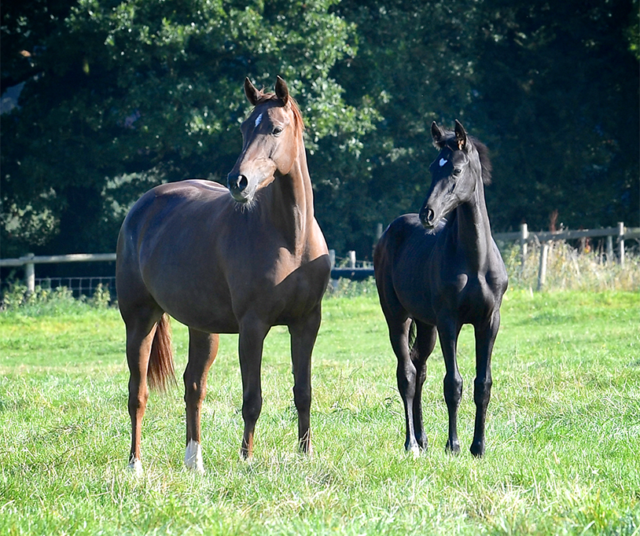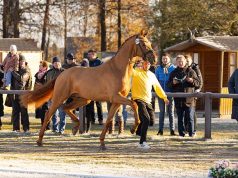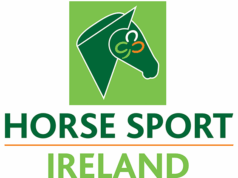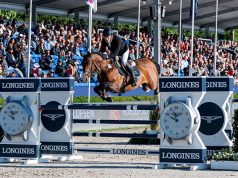
By Eva Maria Broomer / AES
Photography: Horsepowercreative
With AES UK’s busiest season of summer evaluations and mare and foal gradings ahead, now is a good time to reflect on our responsibility as a studbook to promote equine health and welfare. It is often the small changes we can all make to the structure of our breeding events, paying more consideration to reducing unnecessary stress (for horses and their handlers alike) that can make a big difference.
Let us take a closer look at the “Welfare” Section of the AES Breeding Programme and consider some of its key elements:
Equine welfare is at the centre of the Social Licence to Operate and therefore key to the long-term survival of the sport horse breeding industry. It is for that reason that the AES breeding, selections, and evaluation programme has been designed with the happy equine athlete in mind.
As an industry, we are increasingly in the spotlight and have to confront the question of whether it is ethical to breed and compete sports horses constructively, self-critically, and above all with honesty. For us at the AES the concept of the ‘Happy Equine Athlete’, a horse bred with the ability, temperament, and soundness to enjoy their job and carry out its demands with ease is key to addressing this question. Our goal is to support a human-horse relationship based on respect for the horse and on sound, knowledgeable foundations.
Welfare and evaluation criteria
The AES studbook evaluations have been designed with clear welfare goals in mind. The overarching goal in all three Olympic disciplines is to support the breeding of sound horses who can enjoy success in the sport while remaining free from pain. This is why all grading procedures have a ‘soundness assessment’ element on hard ground, including for foals and broodmares, to evaluate correctness of conformation, and to provide useful feedback not only in terms of future breeding selections, but also in terms of management advice to support the development of foals into sound horses and to ensure the comfort of broodmares. By giving two marks, one as the horse is presented at the point of evaluation, and one for the long-term prospect under optimum management conditions, the AES provides active encouragement and incentives for breeders and owners to support their horses’ long-term soundness.
In our experience, studbook evaluations are about a lot more than ranking horses by assigning a numerical value or creating a linear score. They are a conversation between evaluator, owner/breeder and the horse and a valuable opportunity to lend support and provide encouragement. Age-old wisdom says that happy mares make better foals, and we have certainly found this to be true. Providing optimum management to mares, looking after their soundness and comfort throughout their pregnancy can have a significant impact and is something we want to encourage at every opportunity... To read the complete article you need to be a subscriber
CLICK HERE TO SUBSCRIBE TO BREEDING NEWS
SUBSCRIBERS CAN READ THE COMPLETE ARTICLE BY LOGGING IN AND RETURNING TO THIS PAGE



